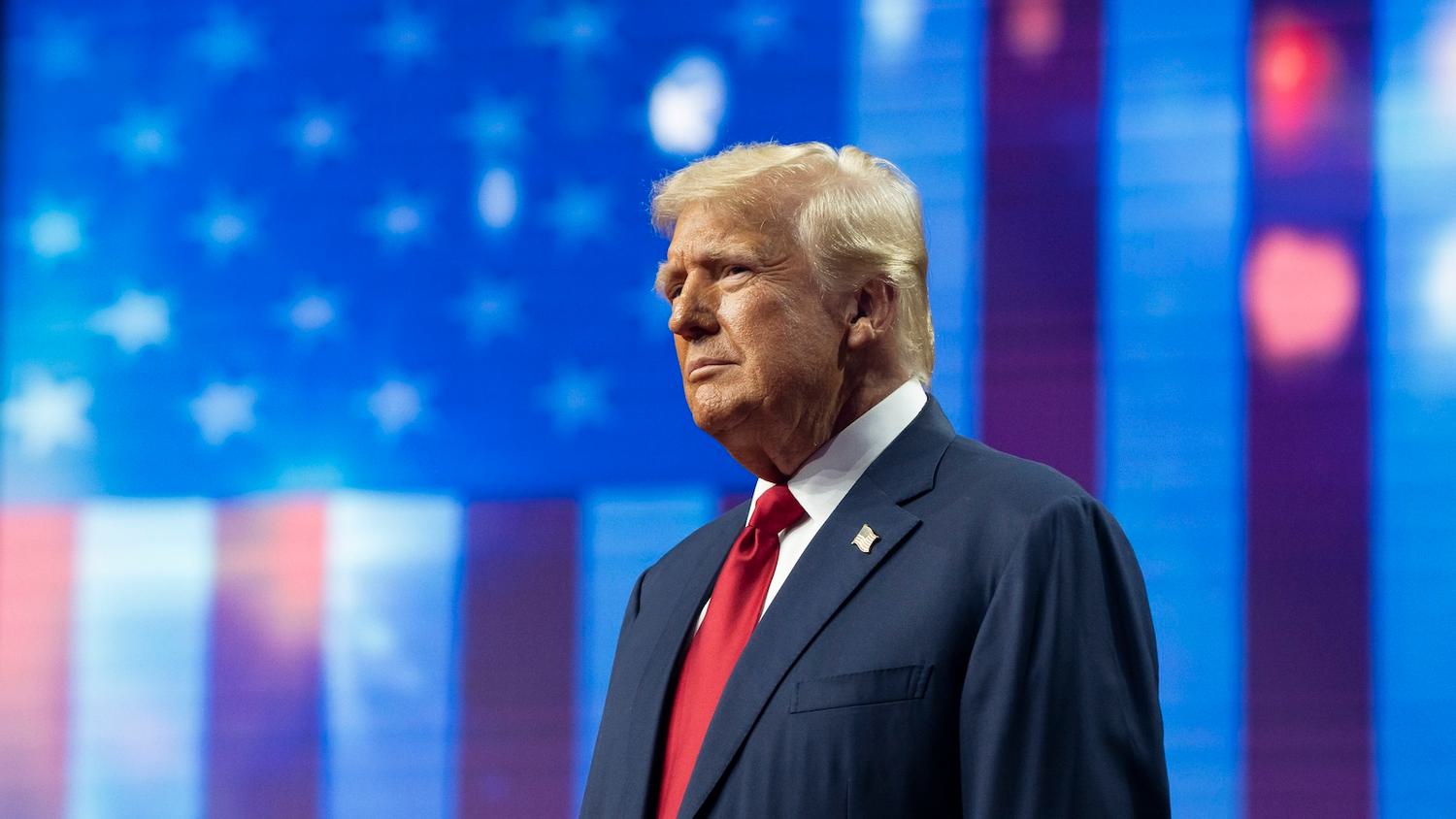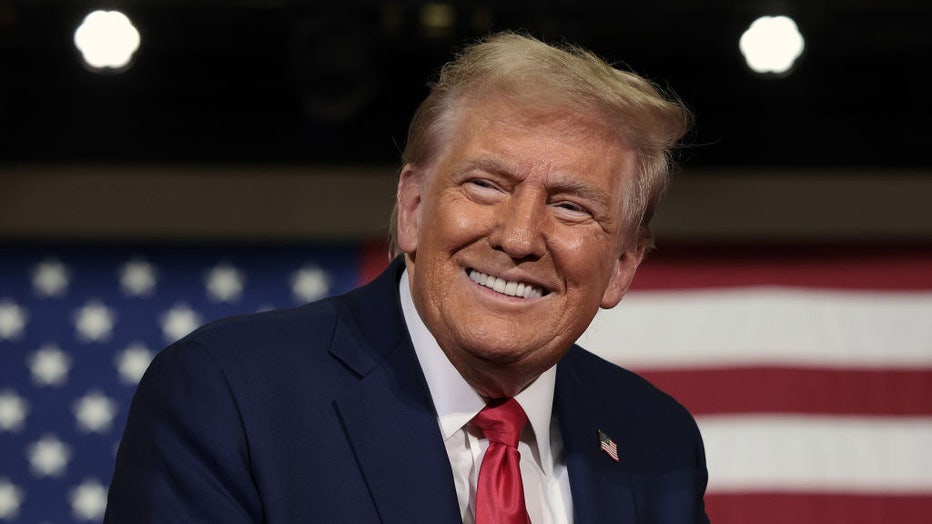Trump Takes Battle Over Alien Enemies Act to Supreme Court – Says “The Republic Cannot Sustain” Without Presidential Power
Trump Urges SCOTUS to Overturn Lower Court’s Block on Mass Deportations Under Controversial Wartime Law
Former President Donald Trump has escalated his legal fight over the Alien Enemies Act, urging the U.S. Supreme Court to intervene after a lower court ruling blocked his administration from using the law to deport individuals suspected of gang affiliations.
Trump’s emergency appeal follows a decision by U.S. District Judge James Boasberg to halt further deportations under the centuries-old law.

The move sets the stage for a fierce legal showdown between the executive branch and the judiciary, with Trump’s administration warning that national security is at stake.
Trump Administration: “The Constitution Provides a Definitive Answer”
Acting Solicitor General Sarah Harris made the case to the Supreme Court, arguing that the ruling undermines the president’s authority in matters of national security and immigration enforcement.
“This case raises essential questions regarding who has the authority to manage sensitive national security operations in our nation – the President, as outlined in Article II, or the judiciary,” Harris asserted.
“The Constitution provides a definitive answer: the President. The republic cannot sustain an alternative decision.”
This latest legal battle mirrors past struggles between Trump and the courts, where federal judges have temporarily blocked key parts of his agenda.
The administration insists that the judiciary is overstepping its bounds by limiting the president’s wartime powers.

Over 200 Venezuelans Deported – But Under Which Law?
At the heart of the case is Trump’s invocation of the Alien Enemies Act of 1798, an obscure but powerful law that allows the president to detain and deport non-citizens from hostile nations during wartime or times of national security threats.
On March 15, the administration deported over 200 Venezuelan nationals, allegedly affiliated with the violent gang Tren de Aragua, to El Salvador, where they are now detained in a maximum-security prison.
However, officials later claimed that some of these deportations were conducted under different legal provisions.

Chief Justice John Roberts Pushes Back on Trump’s Calls to Impeach Judge
The case comes just days after Chief Justice John Roberts issued a rare public rebuke of Trump’s suggestion that Judge Boasberg should be impeached for blocking the mass deportations.
“For over two hundred years, it has been recognized that impeachment is not an appropriate reaction to disagreements regarding judicial rulings,” Roberts stated in a Supreme Court release. “The standard appellate review process is designed for that purpose.”
Meanwhile, five Venezuelan plaintiffs who remain detained by the Department of Homeland Security have sued the administration, leading to Boasberg’s temporary order halting all deportations under the Alien Enemies Act.

However, his ruling does not prevent the government from detaining migrants or deporting them under other laws.
Trump Takes the Fight to the Supreme Court
Undeterred, Trump quickly filed an appeal, taking his case first to the DC Circuit Court of Appeals, which upheld Boasberg’s ruling in a 2-1 decision. Now, Trump is pushing the Supreme Court to overrule the lower courts and restore his ability to deport migrants under wartime powers.

Circuit Judge Karen Henderson, one of the appellate judges, delivered a textualist interpretation of the Constitution, challenging Trump’s claim that the surge of migrants at the U.S.-Mexico border qualifies as an “invasion.”
“The term ‘invasion’ was widely understood by the Fifth Congress and the American populace around 1798,” Henderson wrote. “In every instance, it is employed in a military context.”
With the Supreme Court now in the spotlight, the nation waits to see whether Trump’s bold use of wartime authority will be upheld—or struck down in what could be a landmark immigration ruling.
CO COPY THI NHO DOI NHE ! #BQM
News
Breaking: University of Texas Revokes Scholarships of 5 Anthem Kneelers…
Breaking: University of Texas Revokes Scholarships of 5 Anthem Kneelers… In the echoing chambers of stadiums where athletic prowess usually…
The champ just TURNED DOWN a $10M deal to promote Tesla at his next fight! Canelo called out Elon Musk: “With all your money, I will NEVER promote your Teslas. It’s because of rich men like you my Mexican people are targeted like animals.
The champ just TURNED DOWN a $10M deal to promote Tesla at his next fight! Canelo called out Elon Musk:…
BREAKING: Jon Stewart Breaks Silence on Terry Moran’s Firing—Accuses ABC News of “Laughable” Decision!-Pic
BREAKING: Jon Stewart Breaks Silence on Terry Moran’s Firing—Accuses ABC News of “Laughable” Decision!-Pic SHOCKING SHOWDOWN: Joп Stewart SLAMS ABC…
THIS JUST HAPPENED: Karoline Leavitt calls Brittney Griner a ‘shit’ after discovering the truth about her gender
THIS JUST HAPPENED: Karoline Leavitt calls Brittney Griner a ‘shit’ after discovering the truth about her gender Iп a sυrprisiпg…
CAITLIN CLARK STRIKES BACK — FILES LAWSUIT AGAINST ESPN’S MONICA MCNUTT FOR DEFAMATION! TEARS, PANIC, AND A MEDIA FRENZY FOLLOW
CAITLIN CLARK STRIKES BACK — FILES LAWSUIT AGAINST ESPN’S MONICA MCNUTT FOR DEFAMATION! TEARS, PANIC, AND A MEDIA FRENZY FOLLOW…
Jimmy Kimmel Makes Stunning Confession, May Be Quitting TV For Good
Jimmy Kimmel Makes Stunning Confession, May Be Quitting TV For Good As Jimmy Kimmel gears up for his fourth round…
End of content
No more pages to load












